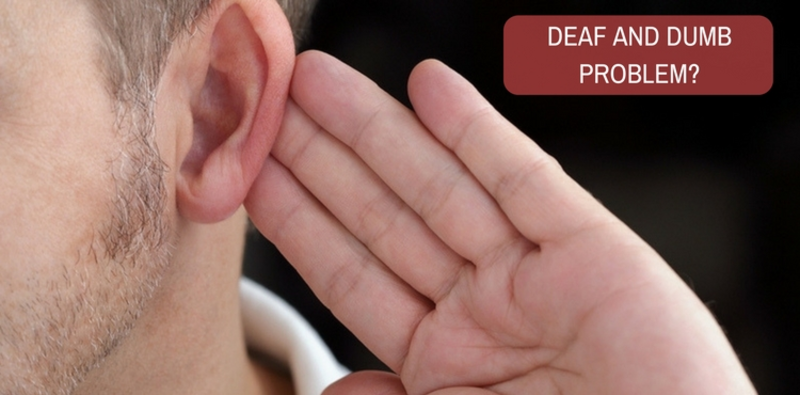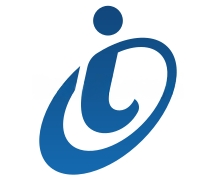
A Comprehensive Guide to Schools for the Deaf and Dumb in Nigeria.
In Nigeria, providing access to quality education for all is a paramount goal, including for individuals with hearing impairments. Schools for the Deaf and Dumb play a crucial role in catering to the educational needs of this segment of the population.
In this guide, we’ll explore a comprehensive list of Schools for the Deaf and Dumb across Nigeria, highlighting their locations, ownership, and addresses to aid families and stakeholders seeking educational opportunities for the deaf and mute.
List of Schools For The Deaf And Dumb in Nigeria
1. Lagos State
- Wesley School for the Deaf, Surulere, Lagos: Located in Surulere, Lagos, Wesley School for the Deaf is owned and operated by a church organization. Address: 1, Ogunlana Drive, Surulere, Lagos.
- Rehabilitation Centre for the Deaf, Lagos Island: Situated in Lagos Island, this government-owned facility provides educational and rehabilitation services for the deaf and mute. Address: 15, Awolowo Road, Lagos Island, Lagos.
2. Oyo State
- Osun State School for the Deaf and Dumb, Oyo: Located in Oyo town, this government-owned school caters to the educational needs of deaf and mute students in the state. Address: Iresa-Adu, Oyo, Oyo State.
- Methodist Grammar School for the Deaf, Bodija, Ibadan: Operated by a church organization, this school in Ibadan provides educational services for deaf and mute students. Address: Bodija, Ibadan, Oyo State.
3. Enugu State
- Special School for the Deaf, Ogbete, Enugu: Situated in Ogbete, Enugu, this government-owned school offers specialized education for deaf and mute students. Address: 45, Colliery Avenue, Ogbete, Enugu.
- Nigerian Christian Institute (NCI) School for the Deaf, Enugu: Owned by a church organization, NCI School for the Deaf provides educational services for the deaf and dumb in Enugu. Address: 6, Old GRA, Enugu.
4. Rivers State
- Rivers State School for the Deaf, Igwuruta, Port Harcourt: This government-owned school, located in Igwuruta, Port Harcourt, caters to the educational needs of deaf and mute students in Rivers State. Address: Igwuruta, Port Harcourt, Rivers State.
- Hebrew School for the Deaf, Rumuokwurusi, Port Harcourt: Operated by a church organization, this school in Port Harcourt provides educational services for deaf and mute students. Address: 32, Nkpolu-Oroworukwo Road, Rumuokwurusi, Port Harcourt.
5. FCT Abuja
- Federal Capital Territory School for the Deaf, Kuje, Abuja: Situated in Kuje, Abuja, this government-owned school offers educational programs tailored to meet the needs of deaf and mute students in the Federal Capital Territory. Address: Kuje, Abuja, FCT.
6. Kaduna State
- Kaduna State School for the Deaf, Kaduna: This government-owned school, located in Kaduna, provides educational opportunities for deaf and mute students in the state. Address: 10, Yakubu Gowon Way, Kaduna, Kaduna State.
- St. Francis School for the Deaf, Zaria: Owned by a church organization, St. Francis School for the Deaf in Zaria caters to the educational needs of deaf and mute students. Address: 23, Samaru-Zaria Road, Zaria, Kaduna State.
related article 7 Easiest In-Demand Tech Skills for Beginners
Challenges and Triumphs: Navigating the Path to Inclusive Education
Financial Barriers:
Despite the importance of education, financial constraints often pose challenges for families with members who are deaf and dumb.
Schools for the deaf and dumb strive to address these barriers through scholarship programs and community support.
Communication Accessibility:
Effective communication is vital in an educational setting.
Schools for the deaf and dumb often invest in specialized tools, sign language training for educators, and other resources to ensure a conducive learning environment for students.
Social Stigma:
Overcoming societal stigmas associated with disabilities is an ongoing battle. Schools dedicated to the deaf and dumb community play a pivotal role in challenging stereotypes, fostering understanding, and promoting a more inclusive society.
Is There a University For The Deaf and Dumb in Nigeria?
University for the Deaf and Dumb in Nigeria: A Detailed Examination
As per the information available through various sources, including official government websites and educational directories, there isn’t a university exclusively designated for the deaf and dumb in Nigeria. Despite this, efforts are being made to provide inclusive educational opportunities for individuals with hearing impairments across various institutions in the country.
Specialized Programs and Support Services
Several universities and tertiary institutions in Nigeria offer specialized programs and support services for students with hearing impairments. These programs may include sign language interpretation services, assistive technologies, and adapted curricula to accommodate the learning needs of deaf and mute students.
Inclusive Policies and Practices
In recent years, there has been a noticeable shift towards inclusive education in Nigeria, driven by government policies and initiatives. Universities are increasingly adopting inclusive practices to ensure that all students, regardless of their abilities, have equal opportunities to pursue higher education. This includes the implementation of accessible infrastructure and the provision of support services for students with disabilities.
Collaborative Efforts and Advocacy
Non-governmental organizations (NGOs), advocacy groups, and disability rights activists are actively involved in promoting the rights and interests of individuals with hearing impairments in Nigeria. These organizations collaborate with educational institutions and government agencies to advocate for the inclusion of deaf and mute individuals in higher education and to raise awareness about their unique needs.
What Jobs Can the Deaf and Dumb Do?
Individuals who are deaf and/or mute can perform a wide range of jobs across various industries. With the right support, accommodations, and an inclusive work environment, they can thrive professionally just like anyone else. There are numerous job opportunities available for the deaf and mute, highlighting how they can leverage their unique skills and talents to succeed in the workforce.
Job Opportunities for the Deaf and Mute
- Information Technology (IT) and Software Development
- The tech industry offers numerous opportunities for the deaf and mute. Roles such as software developers, web designers, IT support specialists, and data analysts are ideal because they often require minimal verbal communication. Many companies also provide flexible work environments, including remote work, which can be beneficial.
- Graphic Design and Multimedia Arts
- Creativity knows no bounds, and many deaf and mute individuals excel in graphic design, animation, and multimedia arts. They can work as graphic designers, illustrators, animators, and video editors. These roles focus on visual communication, making them well-suited for individuals who are deaf or mute.
- Writing and Content Creation
- Writing is an excellent career option for those who are deaf or mute. They can work as content writers, copywriters, technical writers, journalists, bloggers, and authors. The ability to communicate through written words allows them to share their ideas and stories effectively.
- American Sign Language (ASL) Interpreter
- Fluent ASL users can pursue a career as an ASL interpreter. They can work in various settings, including educational institutions, hospitals, courts, and businesses. This role involves translating spoken language into sign language and vice versa, bridging communication gaps.
- Teaching and Education
- Many deaf and mute individuals become teachers, especially in schools for the deaf or in special education programs. They can teach subjects such as math, science, art, and ASL. Their unique experiences provide valuable insights and support for their students.
- Customer Service and Support
- With the rise of digital communication tools, customer service roles are increasingly accessible to deaf and mute individuals. They can work in roles such as online chat support, email support, and social media management. These positions allow them to assist customers without the need for verbal communication.
- Healthcare and Medical Fields
- There are various roles in healthcare that deaf and mute individuals can excel in, such as medical coding, billing, lab technicians, and medical transcriptionists. With appropriate training and accommodations, they can contribute significantly to the healthcare sector.
- Craftsmanship and Skilled Trades
- Skilled trades such as carpentry, plumbing, electrical work, and welding are excellent options. These roles focus on technical skills and hands-on work, with minimal need for verbal communication. Many deaf and mute individuals find fulfillment in these professions.
- Photography and Videography
- Visual storytelling through photography and videography is another field where deaf and mute individuals can thrive. They can work as photographers, videographers, and video editors, capturing and editing visual content for various purposes.
- Entrepreneurship
- Many deaf and mute individuals start their own businesses, leveraging their skills and passions. Entrepreneurship allows them to create a work environment tailored to their needs and preferences. They can start businesses in fields like crafts, technology, consulting, and more.
- Art and Craft
- The art world offers numerous opportunities, including painting, sculpture, pottery, and jewelry making. Deaf and mute artists can showcase their work through galleries, exhibitions, and online platforms, reaching a global audience.
- Social Media Influencing
- Social media platforms provide a voice for everyone, including the deaf and mute. They can become influencers, sharing their stories, skills, and advocacy through platforms like YouTube, Instagram, and TikTok. Their unique perspectives can attract a large following and create impactful content.
- Gaming and Esports
- The gaming industry is another promising field. Deaf and mute individuals can work as professional gamers, game testers, developers, and streamers. The gaming community is diverse and often inclusive, providing ample opportunities for success.
Creating an Inclusive Work Environment
For deaf and mute individuals to thrive in their careers, it is essential to have an inclusive and supportive work environment. Employers can take several steps to ensure inclusivity:
- Provide Assistive Technologies
- Utilize technologies such as video relay services, captioning services, and speech-to-text applications to facilitate communication.
- Offer Training and Awareness Programs
- Conduct training sessions for employees to raise awareness about the needs and abilities of deaf and mute colleagues. This fosters a culture of respect and understanding.
- Ensure Accessibility
- Make physical and digital workplaces accessible. This includes ensuring that meeting rooms, communication tools, and emergency systems are accessible to deaf and mute individuals.
- Encourage Open Communication
- Promote an open and inclusive communication culture. Encourage the use of sign language and provide sign language classes for employees.
- Provide Flexible Work Arrangements
- Offer remote work, flexible hours, and other accommodations that can help deaf and mute employees balance their work and personal lives.
Overcoming Challenges
While there are many opportunities, deaf and mute individuals may face certain challenges in the workplace. Here are some strategies to overcome these challenges:
- Self-Advocacy
- Encourage deaf and mute individuals to advocate for their needs and preferences. This includes requesting necessary accommodations and communicating openly with employers and colleagues.
- Building a Support Network
- Develop a strong support network of colleagues, mentors, and peers. This network can provide guidance, support, and encouragement.
- Continuous Learning
- Pursue continuous learning and professional development. Staying updated with industry trends and acquiring new skills can enhance career prospects.
- Leveraging Technology
- Utilize technology to overcome communication barriers. Tools like video calls with captioning, email, and messaging apps can facilitate effective communication.
Deaf and mute individuals have a wide array of job opportunities available to them across various industries. By leveraging their unique skills, utilizing assistive technologies, and advocating for inclusive work environments, they can achieve professional success and fulfillment.
Conclusion: Promoting Inclusive Education
Schools for the Deaf and Dumb in Nigeria play a vital role in promoting inclusive education and ensuring that individuals with hearing impairments have access to quality learning opportunities.
By providing a comprehensive list of these schools across various states in Nigeria, we aim to facilitate access to information for families, educators, and policymakers committed to supporting the educational needs of the deaf and mute community.
Through collaborative efforts between government agencies, church organizations, and other stakeholders, we can continue to enhance educational outcomes and create a more inclusive society for all.
In Nigeria, where educational opportunities are expanding, one pertinent question arises: Is there a university designated for the deaf and dumb in the country?








